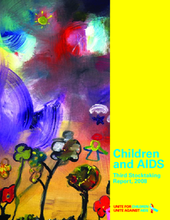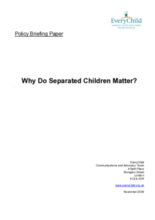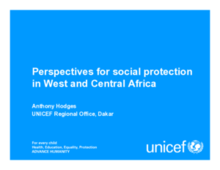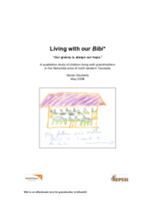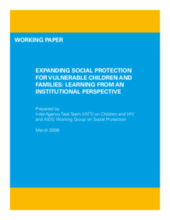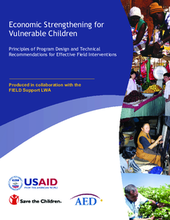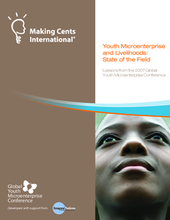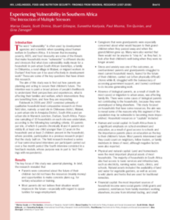Displaying 211 - 220 of 271
Examines data on progress, emerging evidence, and current knowledge and practice for children as they relate to four programme areas
Evaluation of the need for increased understanding and inclusive responses to highly marginalized and separated children.
Assesses constraints and opportunities for social protection programming regionally with particular consideration for child sensitive social protection.
Using Ghana as an illustrative case study, this article examines the ideology and intentions which underpin the Poverty Reduction Strategy Paper required for approval by the IMF and World Bank to qualify for debt relief under the Highly Indebted Poor Countries initiative. This article critically examines the functions assigned to governmental and non-governmental agencies within the social sector generally and the Department of Social Welfare specifically.
A qualitative study of children living with grandmothers in the Nshamba area of northwestern Tanzania
Examines the institutional challenges in implementing national social protection programmes
Provides principles of program design and technical recommendations for effective field interventions
A report from the first-ever Global Youth Microenterprise Conference in 2007. This publication provides insights into the challenges facing youth livelihood development and its benefits for young people and communities.
Research study aimed at understanding the meaning of vulnerability and it's impact on parent's future planning for children in the context of poverty in Malawi and South Africa
This publication explains the impacts of HIV/AIDS on orphans and vulnerable children in the family and community-based care, households and communities; needs of orphans and vulnerable children and responses in the educational system; psychosocial impact on children and youth; human rights of children affected by HIV/AIDS; and religion and responses to orphans and vulnerable children.

